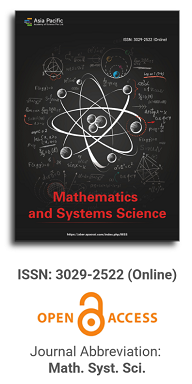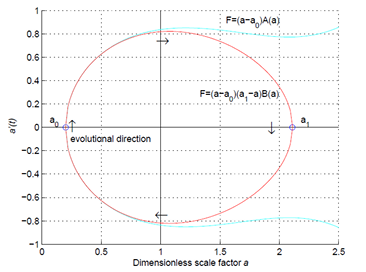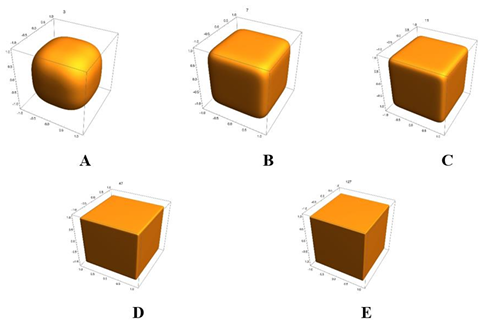


Full Issue
| View or download the full issue |
Issue release: 15 November 2024
The convergence of technology and education has enabled the creation of instructional programs utilizing digital resources, garnering significant interest from educators in developing mathematical culture curricula. This study investigates these factors by incorporating the perceived importance of policy (PIP) variables into the unified theory of acceptance and use of technology (UTAUT) model. Quantitative analysis was employed to collect online questionnaire data from 873 teachers in Henan Province, which was subsequently analyzed using partial least squares structural equation modeling (PLS-SEM). The findings revealed that (1) performance expectation did not significantly impact teachers’ intentions and behaviors regarding the use of digital resources for developing mathematics culture lessons; (2) effort expectations negatively influenced such use; and (3) social influence, facilitating conditions, and perceived policy importance emerged as key drivers, with social influence exerting the most substantial impact. These insights enhance our understanding of the factors influencing teachers’ integration of digital resources in mathematics culture curriculum development. They can inform strategies to improve teachers’ knowledge of teaching with mathematics technology (KTMT) and to promote technology-enhanced mathematics teaching and learning.
Issue release: 15 November 2024
We introduce an algorithm which allows us to prove that there exists an infinite number of matrix strong Diophantine -tuples. We show that Diophantine quadruples generate matrix elliptic (or hyperelliptic) curves which have each matrix points.
Issue release: 15 November 2024
If general relativity is correct, then the origin of the universe is a simple mathematical problem. The Friedmann equation in cosmology is a well-structured ordinary differential equation, and the global properties of its solutions can be qualitatively analyzed by the phase-trajectory method. In this paper we show that the total energy density of matter in the universe is positive, and the total pressure near the Big Bang is negative. By analyzing the global properties of the solutions to the Friedmann equation according to these two conditions of state functions, we find that the Big Bang is impossible, and the space must be a closed 3-dimensional sphere, the cosmological constant is likely to be zero, and the evolution of the universe should be cyclic. The analysis and the proof are simple and straight forward, therefore these conclusions should be reliable.
Issue release: 15 November 2024
In modern society, the monitoring of vehicles is paramount for upholding traffic safety and order. This paper delves into a Graphical User Interface (GUI)-driven system for vehicle target detection and integration. This system seamlessly integrates three pivotal functionalities: vehicle type recognition, license plate recognition, and driver face recognition. It automates the vehicle inspection assessment process through an intuitive user interface. Specifically, for license plate recognition, the system leverages traditional computer vision techniques, including color and grayscale processing, radon transform, morphological operations, edge detection, character segmentation, and character recognition. The driver face recognition module incorporates methods such as image gray scaling, Gaussian filtering for denoising, face detection, and feature extraction. Meanwhile, vehicle type recognition is achieved by extracting Histogram of Oriented Gradients (HOG) features and utilizing a Support Vector Machine (SVM) classifier. Experimental findings highlight the system’s remarkable recognition accuracy, offering a highly efficient and dependable solution for the automated inspections of vehicles.
Issue release: 15 November 2024
Activation functions assume a crucial role in elucidating the intricacies of training dynamics and the overall performance of neural networks. Despite its simplicity and effectiveness, the ubiquitously embraced ReLU activation function harbors certain drawbacks, notably the predicament recognized as the “Dying ReLU” issue. To address such challenges, we propose the introduction of a pioneering activation function, the modified scaled exponential linear unit (M-SELU). Drawing from an array of experiments conducted across diverse computer vision tasks employing cutting-edge architectures, it becomes apparent that M-SELU exhibits superior performance compared to ReLU (used as the baseline) and various other activation functions. The simplicity of the proposed activation function (M-SELU) makes this solution particularly suitable for multi-layered deep neural architecture, including applications in CNN, CIFAR-10, and the broader field of deep learning.
Issue release: 15 November 2024
In this paper, a regularized solution to the Cauchy problem for matrix factorization of the Helmholtz equation in a three-dimensional unbounded domain is constructed explicitly based on the Carleman matrix. When solving applied problems, in addition to an approximate solution, the derivative of the approximate solution is found. It is assumed that the solution to the problem exists and is continuously differentiable in a closed domain with precisely specified Cauchy data. An explicit formula for continuing the solution and its derivative is established, as well as a regularization formula for the case when, under the specified conditions, instead of the original Cauchy data, their continuous approximations with a specified error in the uniform metric are given. As a result, the stability of the solution to the Cauchy problem in the classical sense is estimated.
Issue release: 15 November 2024
Issue release: 15 November 2024
This research aims to enhance taxi travel demand forecasting for sustainable urban traffic management and planning. We extend the Seasonal Autoregressive Integrated Moving Average model into a high-dimensional tensor form by treating the urban transport network as a Euclidean space and introducing Tucker decomposition. This novel approach, both theoretically significant and practically applicable, represents time series data as tensors to better capture multimodal structures and correlations, improving predictive accuracy. Tucker decomposition reduces computational complexity and memory requirements, making it ideal for large-scale urban traffic network prediction. Experiments on six real-world datasets show that the model’s MAE and RMSE are reduced by about 39.43% and 27.01% on average, respectively, compared to the baseline model. Notably, the model is computationally very efficient and takes only a relatively short time to train., suitable for real-time traffic management, congestion mitigation, and resource optimization. In summary, this work innovates time series analysis, providing an efficient and precise tool for urban traffic management and planning, contributing to sustainable urban transportation advancement.
Issue release: 15 November 2024
The current article deals with a study on some moderation of the Phillips operators, including constant and exponential functions. Here, we derive the moments applying the notion of moment-generating function for the well-known Phillips operators. The authors also establish uniform convergence estimates for the improved form of these operators. Additionally, some direct estimates involving the asymptotic-type results are discussed.
Editor-in-Chief

Prof. Youssri Hassan Youssri
Cairo University, Egypt
Asia Pacific Academy of Science Pte. Ltd. (APACSCI) specializes in international journal publishing. APACSCI adopts the open access publishing model and provides an important communication bridge for academic groups whose interest fields include engineering, technology, medicine, computer, mathematics, agriculture and forestry, and environment.


 Open Access
Open Access
.jpg)

.jpg)
